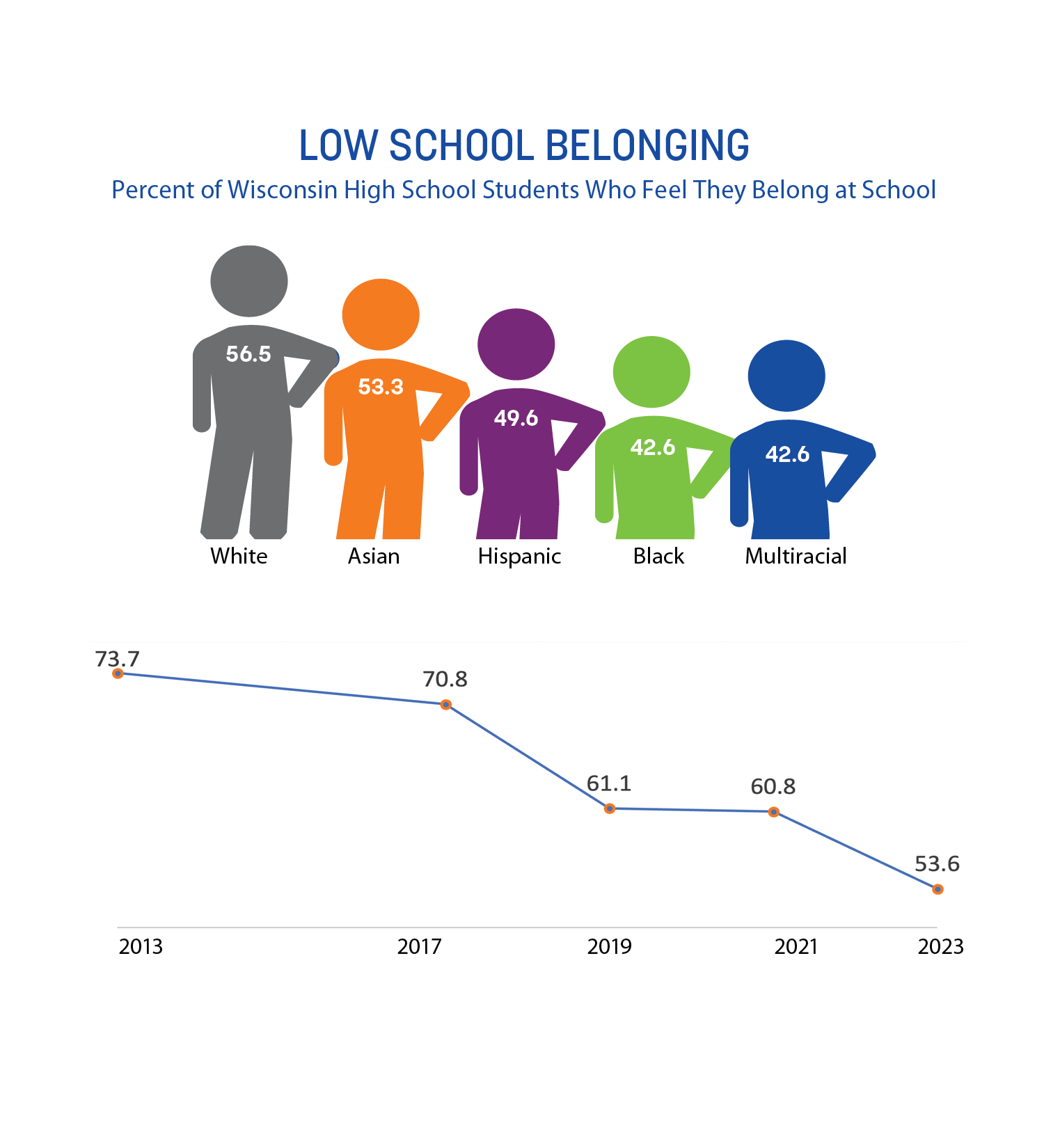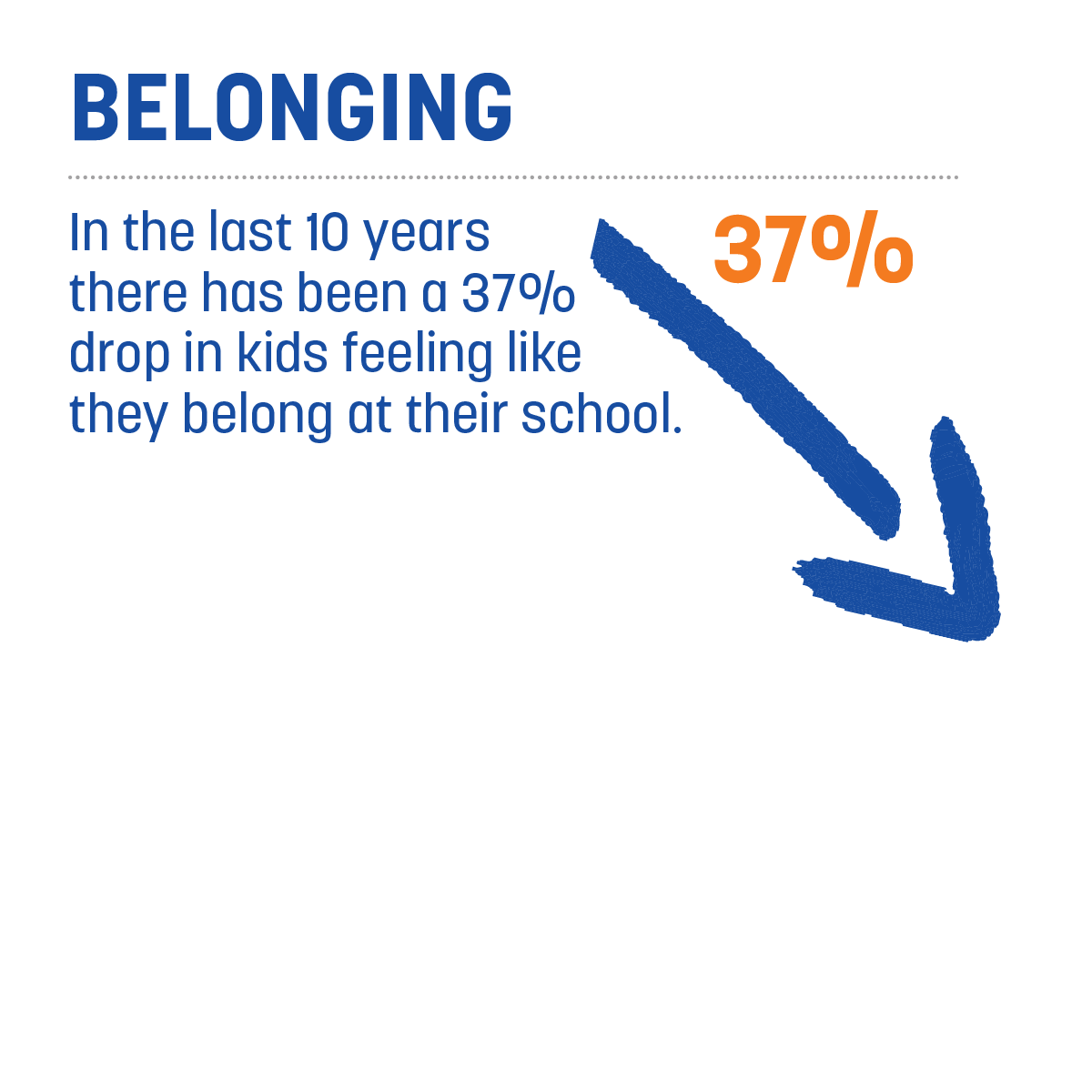Having a sense of belonging is critical to both physical and mental health. It is foundational to child well-being.
What is Youth Belonging
Belonging is the feeling of being welcomed, accepted, respected, and valued within one's social environment, including family, friends, school, and community. It is shaped by positive connections, supportive relationships, and inclusive spaces.
Why Belonging Matters
Youth feeling a sense of belonging and connectedness is essential for learning the life skills that, from infancy to adulthood, allow us to build, participate in, and maintain healthy relationships and good mental health. The risks of not belonging are serious – youth who do not have a sense of belonging are more likely to consider suicide.
Many experts agree that belonging is a fundamental human need. Belonging fosters connectedness and provides for a foundation that positively affects many important outcomes. Young people who feel a sense of belonging generally have:
-
Higher self-esteem
-
Better mental health
-
Better physical health
-
More receptive to supportive relationships
-
Improved attendance at school
-
Improved academic performance, learning, and higher graduation rates
-
Higher income after graduation
Research demonstrates that students do not learn as much when they feel uncertain about their belonging. When kids of all ages and stages feel like a part of their community, they are more likely to thrive.

Belonging Data: Student Belonging at School
A primary indicator to understand youth belonging is the self-reported measurement of student belonging at school. Belonging at school has steadily fallen in Wisconsin. There has been a 20-percentage point drop in the last 10 years of kids feeling that they belong at their school.
Students of color and girls feel lower levels of belonging while LGB students report the least amount of belonging.

Increasing Youth Belonging
Daily practices at home, in schools, and in communities that intentionally build interpersonal connections for young people help to create a sense of belonging.
Belonging and connectedness can be improved, and it does not require a mental health professional to help. Youth Belonging increases when kids:
-
Feel that their presence
matters and that others care about them
-
Feel secure and
supported by the people and spaces around them
-
Feel they're
understood as individuals with personal strengths and abilities, potential and aspirations.
For ideas on how to connect with the young people in your life, read our publication quoting Wisconsin youth:
For specific recommendations from Wisconsin youth on improving school belonging, refer to our publication:
To stay informed, join our
Children's Mental Health Network to receive monthly updates and be invited to quarterly convenings on youth mental wellness topics.
If you have difficulty accessing our materials, or using our website, please let us know by emailing OCMH@wi.gov.
We take digital accessibility seriously and welcome the opportunity to remove any barriers in accessing content.